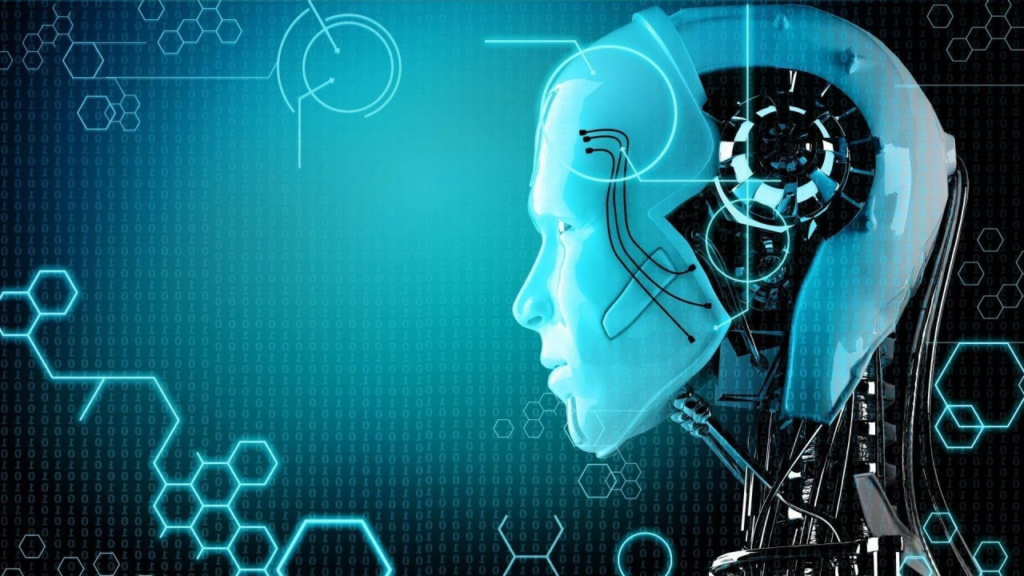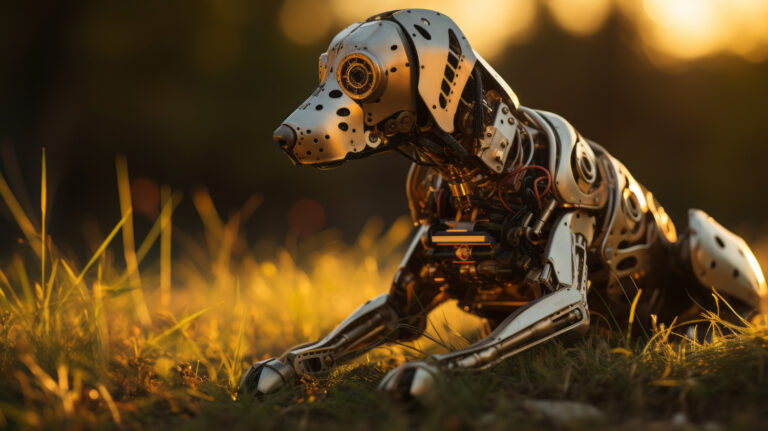
Introduction
Artificial Intelligence (AI) has become one of the most transformative technologies of the 21st century. From voice-activated assistants to autonomous vehicles, AI is revolutionizing various industries and changing how we live and work. This article explores the fundamentals of AI, its applications, and its implications for the future.
What is Artificial Intelligence?
Artificial Intelligence refers to the simulation of human intelligence in machines that are programmed to think and learn like humans. These intelligent systems can perform tasks that typically require human intelligence, such as visual perception, speech recognition, decision-making, and language translation.
AI is broadly categorized into two types:
Narrow AI (Weak AI): Designed and trained to perform specific tasks, such as facial recognition, internet searches, or self-driving cars. It operates under a limited set of constraints and is highly specialized.
General AI (Strong AI): Aims to possess generalized human cognitive abilities. When faced with an unfamiliar task, a general AI system can find a solution without human intervention. This level of AI remains largely theoretical.
How AI Works
AI systems function by processing vast amounts of data and using algorithms to identify patterns and make decisions. Here are some core concepts in AI:
Machine Learning (ML): A subset of AI that enables systems to learn and improve from experience without being explicitly programmed. ML algorithms use statistical methods to identify patterns in data and make predictions.
Deep Learning: A subset of ML involving neural networks with many layers (deep neural networks). It excels in processing unstructured data like images, audio, and text, enabling applications like image recognition and natural language processing.
Natural Language Processing (NLP): Enables machines to understand, interpret, and respond to human language. NLP is used in applications like chatbots, language translation, and sentiment analysis.
Computer Vision: Enables machines to interpret and make decisions based on visual input from the world. Applications include facial recognition, autonomous vehicles, and medical image analysis.
Applications of AI
AI’s applications are vast and growing, impacting numerous industries and aspects of daily life. Some key applications include:
1. Healthcare
AI is transforming healthcare by enabling more accurate diagnoses, personalized treatments, and efficient administration. Examples include:
Medical Imaging: AI algorithms can analyze medical images to detect diseases like cancer more accurately and quickly than human radiologists.
Predictive Analytics: AI can predict patient outcomes and identify high-risk patients for early intervention.
Robotic Surgery: AI-powered robots assist surgeons in performing complex procedures with precision.
2. Finance
In the financial sector, AI is used for:
Algorithmic Trading: AI systems analyze market data and execute trades at high speeds and volumes, optimizing investment strategies.
Fraud Detection: AI identifies unusual patterns and transactions, helping prevent fraud and security breaches.
Customer Service: AI-powered chatbots and virtual assistants provide customer support, answer queries, and process transactions.
3. Transportation
AI is revolutionizing transportation through:
Autonomous Vehicles: Self-driving cars and trucks use AI to navigate, recognize objects, and make real-time decisions.
Traffic Management: AI systems optimize traffic flow, reduce congestion, and improve public transportation efficiency.
Predictive Maintenance: AI predicts maintenance needs for vehicles and infrastructure, reducing downtime and costs.
4. Retail
In retail, AI enhances customer experiences and optimizes operations:
Personalized Recommendations: AI analyzes customer data to provide personalized product recommendations, increasing sales and customer satisfaction.
Inventory Management: AI predicts demand and optimizes inventory levels, reducing waste and ensuring product availability.
Chatbots: AI-powered chatbots assist customers with inquiries, provide product information, and facilitate transactions.
5. Entertainment
AI is reshaping the entertainment industry by:
Content Creation: AI algorithms generate music, art, and writing, creating new forms of digital entertainment.
Streaming Services: AI recommends movies, shows, and music based on user preferences and viewing history.
Gaming: AI enhances game development, creating more immersive and responsive gaming experiences.
The Future of AI
The future of AI holds immense potential, with advancements promising to further revolutionize various sectors. Some anticipated developments include:
Enhanced Human-AI Collaboration: AI systems will work alongside humans, augmenting their capabilities and improving productivity in fields such as medicine, engineering, and education.
AI in Education: Personalized learning experiences driven by AI will cater to individual student needs, optimizing educational outcomes.
Smart Cities: AI will play a pivotal role in developing smart cities, enhancing urban living through optimized resource management, improved public services, and sustainable practices.
AI Ethics and Regulation: As AI becomes more integrated into society, ethical considerations and regulatory frameworks will be crucial to ensure responsible AI development and deployment.
Challenges and Ethical Considerations
Despite its potential, AI presents several challenges and ethical considerations:
Bias and Fairness: AI systems can inherit biases present in training data, leading to unfair or discriminatory outcomes. Ensuring fairness and mitigating bias is crucial.
Privacy: AI’s ability to process vast amounts of personal data raises concerns about privacy and data security. Protecting user data is essential.
Job Displacement: Automation powered by AI could lead to job displacement in various industries. Addressing workforce transitions and retraining is vital.
Accountability: Determining accountability for decisions made by AI systems, especially in critical areas like healthcare and autonomous driving, is a complex issue.
Conclusion
Artificial Intelligence is undeniably transforming our world, offering unprecedented opportunities and challenges. Its applications span across diverse fields, improving efficiency, accuracy, and personalization in ways previously unimaginable. As AI continues to evolve, it is imperative to address ethical considerations, ensure fairness, and develop robust regulatory frameworks. By harnessing the power of AI responsibly, we can unlock its full potential and create a future where intelligent systems augment human capabilities and drive progress.


